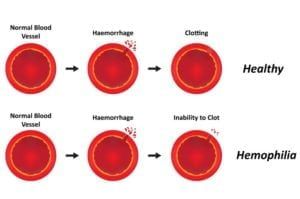Veterinarians can prescribe antibiotics and medications, and when the available drug options are appropriate for your pet’s condition, compound medications can help provide the medicine they need. Compound medications help in scenarios where the medication your pet needs has ingredients they’re allergic to, or come in a form that’s unaccommodating to their condition, and many more situations where your pet needs specific requirements that generalized medications don’t have. Here’s what you should know about compounded medications, and how we can help.
What are compound medications?
Compound medications are altered versions of the original drug, customized to treat specific conditions. They are modifications of FDA-approved human or animal drugs and can be done by either a veterinarian or compounding pharmacist that has received the prescription. The FDA calls these drugs “Extra-Label Drugs.” These drugs are regulated under FDA guidelines and other organizations for safety and quality measures, such as the Compounding Act and Section 503A. Other organizations, such as the United States Pharmacopeial Convention, also provide regulations for compounded drugs. In the case of animals, organizations such as the American Veterinary Medical Association, also have policies regarding compounded medications.
What conditions would pets need compounded medications?
If none of the available medications suit your pet’s condition, your veterinarian can discuss using compounding pharmacies to create a prescription for your pet’s needs. For instance, if your dog has hyperthyroidism, but rejects tablets hidden in their food, compound medications can apply. It also helps during situations where the first medication doesn’t have other forms needed for your pet. Compound pharmacies in these cases can customize the medicine, giving it specific formulations and doses to help ease the administration of that drug to treat your pet.
Forms of Compounded Medications
Oral – These medications combine several ingredients to create a new form of the drug. When compounded, the varying size and dosage can make it easier for your pet to swallow.
Transdermal – Topical treatments can contain ingredients your animal can’t absorb, and depending on the dosage, won’t work as effectively as needed. Transdermal medications, when compounded, suspend the active ingredient of the medicine and improve on it.
Flavored Suspensions – Adding flavors to the medication can make the medicine more palatable, such as peanut butter, beef, chicken, and bananas.
Tablets/Chews – Tablets and chews also help make the medication easier to ingest, and are designed for pets who are too sick to swallow.
How Veterinarians Prescribe Compound Drugs
When a patient visits their veterinarian, their veterinarian will first need to prescribe the necessary medication by determining if a compounded drug is essential, prescribe the remedy to a reputable compounding pharmacy, and will typically inquire about the pharmacy and medicines with their state’s board of pharmacy to assert the status for filling prescriptions and other valuable information regarding the medication. Veterinarians prescribing compound drugs will follow the FDA guidelines, the DEA rules, and other federal and state regulations for compounding because compounding can be considered legal when these rules are followed, and there is an established veterinarian-client-patient relationship.
To best discuss your compounding options, contact our practice. Our office will inform you about our associated pharmacies, what kind of compound drugs can be produced, and how we can best treat your pet’s condition. To schedule an appointment with us, call us to schedule an appointment today.











































































































































































































































































































